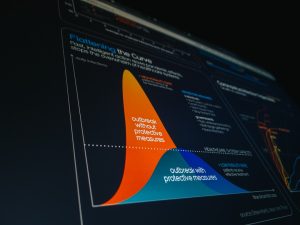
In today’s competitive real estate market, adopting the right tools is not just advantageous — it’s essential. One of the most transformative tools in a real estate professional’s arsenal is the Customer Relationship Management system, or CRM. The best real estate CRMs do far more than store contact information; they streamline operations, enhance client engagement, track lead progress, and ultimately drive more closings.
The real estate industry is unique in its demands, requiring real-time communication, calendar synchronization, property listings management, and performance analytics. The top-performing CRMs are tailored specifically to these needs, offering agents and brokers a seamless user experience that supercharges their productivity.

The Core Functions of a Great Real Estate CRM
Lead Management: Managing leads effectively is the cornerstone of closing deals. Elite CRMs automatically capture leads from various channels — such as websites, social media platforms, and listing services — and categorize them based on potential or behavior. This helps agents prioritize their efforts and nurture leads at the right times.
Automated Follow-Ups: The best CRMs take follow-up communication to the next level by automating email and SMS campaigns. Whether it’s a welcome message to a new lead or an ongoing updates campaign for a fence-sitting buyer, automation keeps communication consistent without much manual input.

Detailed Reporting and Analytics: Data is power. Real estate CRMs offer robust reporting features that provide insights into team performance, marketing campaign effectiveness, and sales metrics. With this information, brokerages can refine their strategies and agents can track their growth over time.
Key Features that Make Real Estate CRMs Stand Out
- Mobile Compatibility: The modern real estate agent works on the go. A CRM with a mobile app ensures access to client data, listings, and communication tools anytime, anywhere.
- Property Matching: Some advanced CRMs match prospective buyers with the ideal listings based on their preferences and past searches. This feature accelerates the house-hunting process and improves client satisfaction.
- Team Collaboration Tools: For larger brokerages, shared calendars, task assignments, and communication logs within the CRM keep the entire team in sync.
- AI and Predictive Analytics: Top-tier CRMs incorporate artificial intelligence that analyzes past behaviors and trends to predict which leads are most likely to convert.
How Real Estate CRMs Drive Performance
From simplifying day-to-day operations to offering a bird’s-eye view of the business pipeline, an effective CRM is a game-changer. Agents no longer need to juggle spreadsheets, inboxes, and note-taking apps. Instead, everything is integrated into a single, intuitive platform.
This level of organization means less time spent on administrative tasks and more time on building relationships and closing deals. Moreover, consistent and timely communication nurtures client loyalty and boosts referral business — two key components of a thriving real estate career.

Top Real Estate CRMs on the Market
There are several CRMs that have gained popularity among real estate professionals. Platforms like Follow Up Boss, LionDesk, and Real Geeks are known for their rich feature sets and scalability. Others, like kvCORE and BoomTown, offer end-to-end solutions for larger brokerages and include website integration, lead generation, and robust analytics capabilities.
The right CRM often depends on the unique needs of the individual agent or brokerage. Factors such as budget, team size, existing technology stack, and the type of clientele served should all be considered when selecting a CRM solution.
Conclusion
Success in real estate is about relationships, timing, and information. A powerful CRM system leverages all three to help agents close more deals with less stress. By automating time-consuming tasks, improving client interactions, and offering actionable insights, the best real estate CRMs serve as a silent partner in every agent’s success story.
FAQ
- Q: Do I need a real estate-specific CRM, or can I use a general one?
A: While general CRMs can work, real estate-specific CRMs come with tailored features like MLS integration, property alerts, and buyer-matching tools that make your workflow more efficient. - Q: Are real estate CRMs expensive?
A: Prices vary. Many CRMs offer tiered pricing based on features and team size. Some options are under $50/month, while full-suite systems for large brokerages can cost significantly more. - Q: Can a CRM help me get more leads?
A: Yes, many CRMs integrate lead generation tools or offer third-party integrations that attract and capture leads from websites and social media. - Q: How long does it take to set up a CRM?
A: It depends on the platform, but most CRMs offer onboarding support and can be set up within a few hours to a few days with full data import and customization. - Q: Is a CRM useful for solo agents or just large teams?
A: Both. Solo agents benefit from automation and organization, while teams value collaborative features. Most CRMs scale according to your needs.






